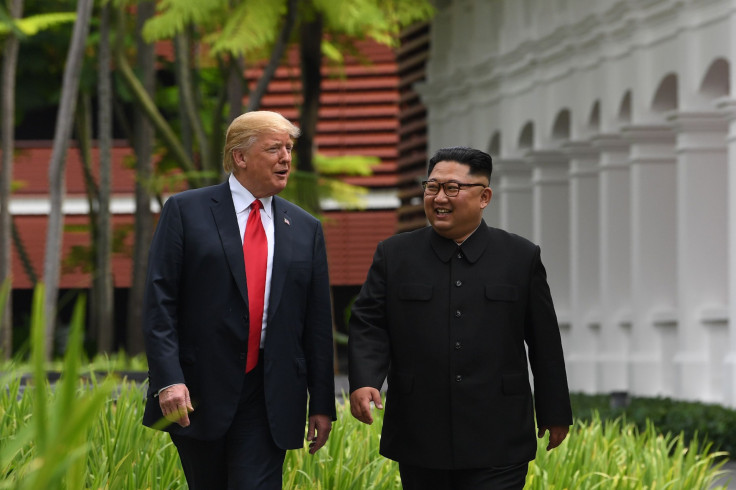North Korea Encourages Self-Reliance From Citizens ‘Even If We Starve To Death’

North Korea’s official newspaper published a report Thursday urging people of its nation to be self-reliant when it comes to tackling the harsh economic conditions currently prevalent in the impoverished country.
The state media’s pitch for self-reliance came in wake of the lack of any major developments in February's curtailed summit between President Donald Trump and North Korean leader Kim Jong Un, which dashed Pyongyang’s hopes for relief from sanctions imposed against the country.
“We have gone through post-war ashes and the Arduous March but the challenges that we have been facing in recent 10 years of the century are in effect the most severe hardship in our republic's history," said the Rodong Sinmun, the official newspaper of the North's ruling Workers' Party, Yonhap News reported.
The Arduous March referred to a time in the 1990s when North Korea faced extreme poverty and massive starvation. The paper called for "courage and bold creativity of making something out of nothing” and a “strong spirit” to make it through the hard times "as long as there is water and air.” It added that a nation which was dependent on foreign powers was weak and lethargic.
"We have to prove that we can open a bright path forward on our own until the end in the face of any kinds of challenges," the paper said. "We cannot abandon self existence even if we starve to death... Self existence is a hard thing to do but it is like a medicine that strengthens national power."
Even as the U.S. remained determined to keep the sanctions against North Korea in place till it agreed for complete denuclearization, the United Nations released an annual report recently, highlighting the "unintended consequences" the sanctions were having on humanitarian programs the organization ran in North Korea.
"Despite the exemption clauses and the Committee's efforts, United Nations agencies and humanitarian organizations continue to experience unintended consequences on their humanitarian programs that make it impossible to operate normally in the Democratic People's Republic of Korea," the report said, according to another Yonhap article.
The report also requested the U.N. Security Council committee overseeing sanctions on North Korea to assess the humanitarian impact of sanctions and review its future exemptions in a "time-bound" manner.
Some of the main areas of concern noted in the report were delays in exemptions causing the collapse of the banking channel, delayed customs clearance, a decline in foreign suppliers, humanitarian-related items becoming increasingly expensive and diminished funding for operations. "These are negatively affecting their ability to implement humanitarian-related programs,” it added.
The committee on sanctions was also requested to allow "greater flexibility regarding the technical specifications of planned shipments, the parties involved and the frequency of requests and submissions” and publish "a whitelist" of specific non-sensitive items used in humanitarian operations in order to make the application process of those products simpler.
"The secretary-general should request the Secretariat to carry out an assessment of the humanitarian impact of sanctions in the Democratic People's Republic of Korea," it said.
© Copyright IBTimes 2025. All rights reserved.





















